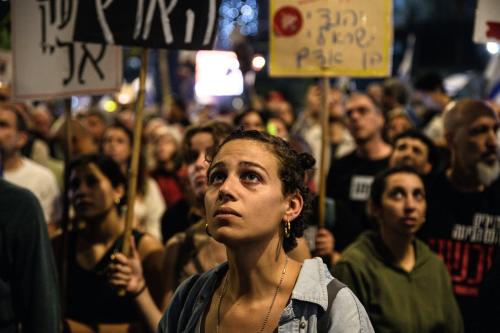As you’ve undoubtedly seen if you’ve read this blog at all in recent days – or for that matter, followed Iran anywhere – this week was a time to reflect on the coup that deposed Iranian Prime Minister Mohammad Mosaddegh exactly 60 years ago. Although it was widely known through first-person accounts and memoirs, and alluded to at times by American officials like Madeleine Albright and Barack Obama, this week saw the first release of CIA documents acknowledging the agency’s involvement in the coup. The documents were obtained and published by George Washington University’s National Security Archive, whose research director, Malcolm Byrne, wrote about the find in Foreign Policy. The quasi-revelation was covered in many other publications as well, including the Guardian, where Saeed Kamali Dehghan and Richard Norton-Taylor contextualized the news with words from the noted historian Ervand Abrahamian.
On a different historical note, an investigation by Radio-Canada told of how several Iranian officials knew about the six American diplomats hiding in the Canadian Embassy during the 1979 hostage crisis. The report tells of high-level Iranians who kept the Americans’ secret and avoided blowing their cover, thus further driving home the fact that Argo didn’t quite tell the full story.
Supreme Leader Ali Khamenei earned a lot of attention this week, notably in the lengthy profile of him as a man with complex, nuanced philosophies and motivations written by Akbar Ganji in Foreign Affairs. Elsewhere, a Reuters piece by Yeganeh Torbati and Jon Hemming cast doubt on the theory that Khamenei is truly unchallenged as a decision-maker in Iran.
Fereshteh Ghazi of Rooz sat down with reformist political figure and former Tehran Mayor Gholam-Hossein Karbaschi, who spoke with confidence that Rouhani is moving Iran forward, but claimed that the rejection of three of his cabinet nominees shows that a current of extremism remains entrenched in the Majlis. Meanwhile, on the same topic, the Financial Times considered the approval of the bulk of Rouhani’s cabinet to be a reversal of Ahmadinejad’s policies.
Sanctions were a hot topic this week. While the Wall Street Journal covered the ability of China to import large quantities of Iranian fuel oil, there were two stories that discussed some of the unintended effects of sanctions. In Science, Eliot Marshall pointed out that the threat of sanctions has pushed the academic journal giant Elsevier to institute new restrictive rules on accepting submissions from Iranian government-affiliated academics. Meanwhile, a mild Twitter-storm of disappointment in the sanctions’ secondary effects erupted around the New York Times article by Greg Bishop detailing the likelihood that Iranian tennis referee Adel Borghei will be prevented from accepting his offer to work at the U.S. Open.
Enjoy the weekend!



Commentary
What to Read on Iran this Week: The CIA, Sanctions, the Cabinet, and Khamenei
August 23, 2013